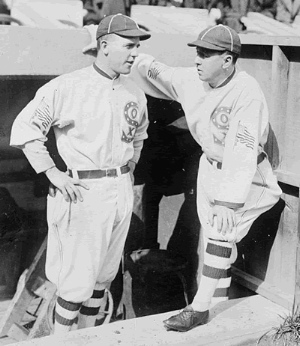I’m happy to report that, contrary to no reports of which I’m aware, there’s no established historical link between White Sox World Series victories and severe hurricane seasons. This non-finding is the product of minutes of meticulous research.
The White Sox won the World Series this year — last night, in fact, if reports are to be believed. At nearly the very same time as the Chisox went into their victory dance in Houston, the National Hurricane Center was reporting the emergence of the 23rd named tropical cyclone, Tropical Storm Beta, of the 2005 Atlantic tropical cyclone season. Could there be a correlation between the ecstasy on Chicago’s South Side and the agony throughout the Caribbean and Gulf basins?
To answer that question scientifically, I typed “1917 hurricane season” into my conveniently located Google search box, located in the upper right of my Web browser. The choice of 1917 was not random. Rather, it is the widely reported year that the White Sox won their last World Series. A severe storm season that year might suggest a Hose-hurricane convergence. While these cyclones can never be said to be “a picnic,” in the meteorological sense, evidence indicates that the season that year was as carefree as they come, with just three storms reported and just one that hit the United States.
I next searched for information on the 1906 hurricane season — which unfolded the year of the only other Sox triumph in the Series. The 1906 season was considered “average,” with 11 storms, six of which became hurricanes (and three of the hurricanes evolving into major, destructive storms).
To complete my investigation, I checked to see who won the World Series in 1933, which, with 21 storms, had held the record for the Atlantic’s most cyclonic year. The answer: The New York Giants. (Three of the other four years the Giants won — ’05, ’21 and ’22 — were mild hurricane years; the last Giants victory, in 1954, was average in terms of number of storms but produced Hurricane Hazel, which killed 1,000 or more people.)
Conclusion — are you still with me? — The White Sox played no part in this year’s overactive hurricane season. Future inquiries might look at the coincidence of Sox championships and major earthquakes.
Technorati Tags: hurricanes, world series

